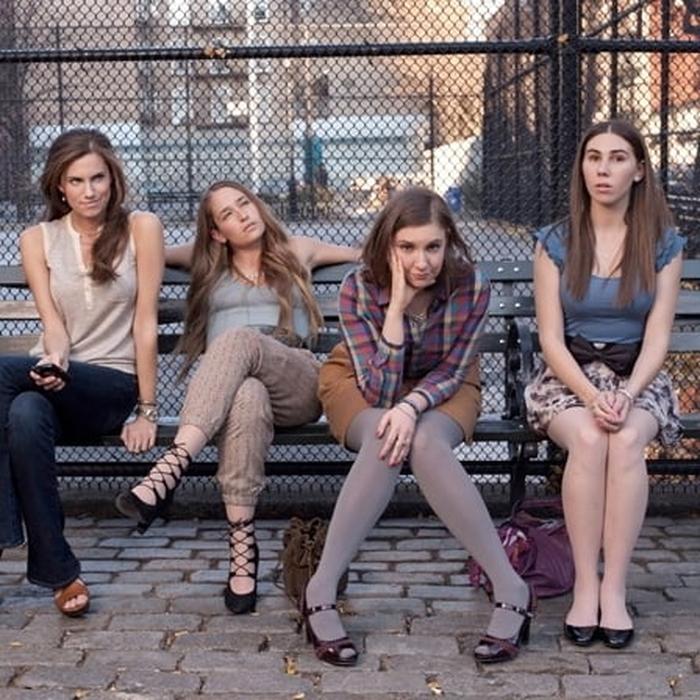
It’s back! It’s back! Last Sunday, Lena Dunham’s brilliant Girls returned to HBO for its second season. Teeming with that same naked, intelligent energy as last season, Girls deserves all good things. (OK, I admit I wasn’t an early adopter. I felt a bit—well, old, but when my pop culture curiosity got the best of me, I watched the entire season in one night.)
So this week, I couldn’t help but to search for books that were Girls-reminiscent. And what did I discover? Well, that Lena is truly an original. I encountered a lot of confused 20-somethings with girlfriends and boy drama, but none that quite tapped into that post-recession ethos the Girls does so well. Also, the best part of Girls is that they aren’t drags! They have fun. They laugh and dance. I don’t know if authors think they need to be more serious, because they are writing a book, not a TV show, but, yeesh, people need to relax.
Still, these novels were page-turners, and a nice combo of chick lit, coming of age, and New York novels. If you’re looking for something to tide you over in between Sundays, here’s a list to get you started.
A Fortunate Age, by Joanna Smith Rakoff
Rakoff is a nimble writer, and her story of six friends figuring out how to be grown-ups is definitely engrossing. It begins with a wedding in Brooklyn in the mid-90s, before the Internet and Williamsburg blew up. Naturally, there’s an actor, a writer, a scholar, a rich girl, a musician, and a nascent web journalist.
I definitely related to the job experiences and tangled friendships of the characters, I only wish they hadn’t been so morose all the time. They are always tired—of auditioning, of being successful, of not being successful, of being the wrong kind of successful, of their friends, of mothering, of their husbands, of their city, nursing, renovations, being tired. They barely laugh, and are always surprised when other people do. They are each outsiders fitting the rest of the world into clichéd boxes (rich eco-warrior, nazi mom), when they, in fact, are types themselves.
But Rakoff has such a great grasp of how fraught and nurturing that group of post-college friends is, and a very keen sense of how the Internet bubble changed careers and fortunes. I couldn’t put it down, even if what I really wanted to do was take their pretty, long faces in my hands and say, “Life is beautiful! Chill!”
Side note: A Fortunate Age was inspired by The Group by Mary McCarthy, a Girls for the 1930s, about a group of Vassar grads and their adventures in New York. Just as Rakoff’s novel tackles the cultural and psychic impact of the Internet age and 9/11, McCarthy looks at changing social norms for women and life during the Great Depression.
Free Food for Millionaires, by Min Jin Lee
Like A Fortunate Age, this novel takes place in the mid-90s. (It will be interesting to see what novels come out of Lena Dunham’s generation.) It follows the experiences of Korean-American Casey Han, who is the most indecisive person on Earth, both in love and in career. She also never laughs. It’s a very meandering novel, with only glimpses of real relevancy.
It is, however, refreshing to read a book about the experiences of someone from a different cultural background than your typical white New Yorker. Casey is very modern, and her ideas about her life often chafe against the life her parents knew and expect for her. Her friendship with Ella is a highlight of the novel, and a reminder that the heartbeat of shows like Girls, and of novels about the struggle to assert one’s independence after college, really only work if the relationships ring true.
Honorable Mentions
The Emperor’s Children, by Claire Messud
An early-oughts look at three nearly 30-something college friends whose lives are upturned by the arrival of several interlopers.
The Best of Everything, by Rona Jaffe
A Man Men/Girls combo published in 1958 to the shock and excitement of women who saw themselves in the five working women of the novel—women who weren’t June Cleaver at all.